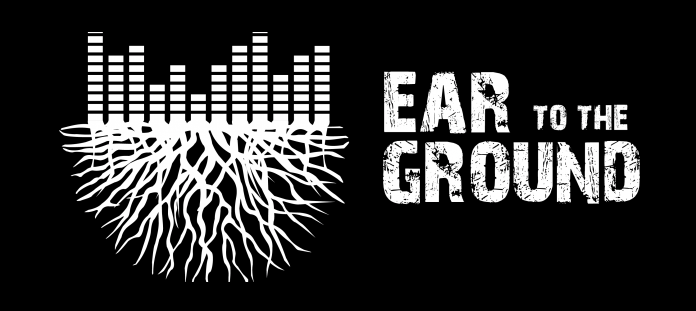Your cart is currently empty!
Long Reviews

October 2017
Alan Cackett Facebook Review, former editor of Maverick Magazine
I had a great evening last night at the Dancing Dog Saloon, Bobbing, near Sittingbourne, Kent to see Billy Kemp, a talented singer-songwriter and ace guitarist, originally from Baltimore, but now living in Nashville. Many might know Billy from his regular tours over here in the duo Jeni & Billy. An amiable and entertaining performer, Billy had the audience in the palm of his hand from the moment he stepped on stage. His stories and the background to his songs were both humorous and enthralling. He performed many songs from ANOTHER LIFE, his latest solo album (in fact his first solo album in nearly 20 years). A sort of autobiographical collection, the songs are mainly centred around his growing up years in the Paradise neighbourhood of Baltimore, yet despite this they are very much universal. We’ve all grown up with an Aunt Lil (Lillian And The Blue Car), though probably not the blue car; or the friendly neighbour that we fondly referred to as ‘uncle’ (Requiem For An Organ Player) and I couldn’t help smiling knowingly about the ‘falling down liquid’ in Mr. Wilson, the Stonecutter.
Billy Kemp, and his enchanting partner Sue, will be touring the UK for another four weeks. I highly recommend that if he’s in your area you go out and see him … you will not be disappointed.

November 2017
Ron Dukelow presenter and owner of The Live Room, Saltaire, England
There were many outdoor fireworks displays on Friday night. Indoors at the Live Room however we had some musical pyrotechnics to match anything going on outside. The opening act was Billy Kemp, born in Baltimore but a long time Nashville resident who played a 1930’s Martin guitar and an opened backed banjo, named Moe and Bart respectively. A Grand Ole Opry performer and a great songwriter and raconteur who had a very relaxed and accomplished manner. Opening with ‘Death & Taxes’, his delivery reminded me very much of Loudon Wainwright III. In the 1980’s Billy hosted writers nights at the legendary Bluebird Cafe. He mixed great stories with very well-crafted songs, many from his new album, Another Life, all delivered in a very clear distinct voice with great musicianship on both guitar and banjo. He finished his set to great applause with ‘Mr. Wilson, the Stonecutter’, stone cutter being a term used to describe people who drank too much ‘falling down water’.

January 2018
Ear To The Ground– Single Song Review Another Life To Live from Another Life
This is the most heartbreaking breakup song you’ve ever heard, honestly. It’s minimal in the recording style, allowing the scathing lyrics to cut through the air with so much more precision. It really sounds like it could come out of the hills with Pa Carter. It’s a really remarkable recording and song. I can’t wait to hear more from Kemp with this roots, raw style.

March 2018
Opening track, “Harbor”, is the only cut with additional musicians as multi-instrumentalist Craig Eastman joins Billy Kemp on Billy’s recent release, Another Life. The remaining tracks on Another Life feature Billy Kemp on percussion, piano, melodica, banjo, bass, guitars vocals and horn arrangements for the tunes collected. Billy Kemp picks out banjo notes that stand stark against the lyrics, like starlight making its point with tiny flickers in the darkness of “Night Time Sky”. Another Life takes a walk with Mountain Folk music as its travels into “Down Where the Dogwoods Bloom”. The album introduces “Mr. Wilson, the Stonecutter” on a rhythm of plucked notes, shakes the story of “Benjamin Banneker” with the persistent rattle of percussion, and peaks into the life of a Baltimore man returning home from work on the water in “Chesapeake Narrows”. Billy Kemp is a storyteller, the music backing his tales with guitar rambles (“Seven Mondays”) and finger-picked reveries (“Lillian and the Blue Car”) as Another Life sits at Billy’s piano bench to travel into a memory on “Kings of the Grandstand.”

April 2018
Susie Glaze review for Folk Works
Have you ever heard the booming “WAOHH” of a huge ship coming into port? From the first enveloping, opening strains of Billy Kemp’s fine new album “Another Life” you know that something profound is coming ~ and something is, with a depth and melancholy that matches the grandness of that sound of the “Harbor.” This song announces to you that you are indeed near the deep water of memory: in this case the clear and deep memories of growing up in Baltimore, where much of this collection of great new story songs takes place. The sounds are richly evocative of the place, though the times are transcendent. In all of them, there is the path of dipping back into a childhood spent in a place teeming with character, humor and heart.
Nashville singer-songwriter Billy Kemp is known to Southern California audiences as one half of the former Appalachian Folk duo Jeni and Billy. This album was released in September of 2017, just about a year after the duo went their separate ways, and as someone who has been their fan for a long time, I listened and looked closely for signs of evolution. Billy’s fine playing, singing, songwriting and love for classic country styles holds him up so well here, and we can hear his fine gifts on full display.
The writing on this album is shared by Billy and Jeni as well, along with Alfred Hickling, Sue Ellen Griffiths and Geoffrey Himes, but I feel that the voice is distinctively Billy’s, especially as he recounts the vividness of his memories of Baltimore. Not surprisingly given Billy’s rich background in country, folk and Appalachian music, the classic elements of writing and musicianship are used to the highest effect: so much of the music calls to mind the most classic of American country: Carter Family, Delmore Brothers and the Blue Sky Boys to name a few. Folk elements are there with the complexities of the instrumentations, using melodica, piano and percussion along with the guitars and banjos. Musician Craig Eastman adds his fine coloring to many tracks with mandolin, lap guitar, violin and tenor violin.
The album begins with the sound of the Harbor, and you are instantly transported to the port of Baltimore. Billy states in his notes: “This track always takes me back to Baltimore. I sometimes walk with my Dad at Fort McHenry’s one mile loop, and we usually hear and see a container ship arriving to the port to unload. When they blow their horn, it echoes off of the brick buildings that surround the harbor.”
Memories begin to rush in with “Kings of the Grandstand” telling the stories of watching the horse races at Pimlico and other area tracks. “Another Life To Live” is a new song that sounds like the first classic of the group, recalling the day when a wife tells her husband that she is leaving him:
They stood on a porch one evening
By the light of the moon up above
He’d given his heart to her surely
But she was no longer in love
He was standing beside her shadow
When she spoke those words of surprise
She never intended to hurt him
Never meant to be unkind
My dear, I’ve fallen for another
Can you find it in your heart to forgive?
I no longer wish to be your lover
My hope is that you’ll find another
Another life to live.
The next song is full of a specific folklore. It seems that in Baltimore the neighborhood people would call drunkards “stonecutters” because they would often fall and hit their heads on the marble stoops. Hence “Mr. Wilson the Stonecutter” is an evocative character-driven tale.
Another character study, this time about a real-life person, is called “Benjamin Banneker” and is about an African American man as Billy explains: “Just west of where I grew up in Paradise is a community called Oella. It is on the Baltimore county side of the Patapsco river just across from the 18th century mill town, Ellicott City…(he) lived there from 1736 to 1806….His story is remarkable and if it weren’t for him laying the cornerstones of our nation’s capital, we wouldn’t have the traffic we all enjoy and love on the Washington beltway.”
The classic strains of “Down Where the Dogwoods Bloomed” take my soul up to the hills of Appalachia and calls to mind the sweet melancholy tucked inside the songs on this album:
You always knew we’d find a house
That had two dogwood trees
And every spring we’d catch the bloom
That only lasted two weeks
But like the flowers that fade so fast
You were called too soon
We hoped that there would still be time
To see the dogwoods bloom.
Billy paints clearly with poetry and memory again in “Lillian and the Blue Car” one of the three he wrote himself. He tells the story of his Aunt Lil who had a blue car, and this car actually made it into a special work of art. “In October [of] 2016 I received an email from a painter friend and collaborator, Ann Phelan, who was announcing one of her works to be on exhibit in Zurich. I liked the curated painting and wrote back to compliment her work. She told me that an image in the painting was most likely inspired by a car I had years ago, a blue Pontiac Ventura, 1972. She asked about the car. I began remembering things about it and as I wrote down my thoughts, I realized that they would work well in a song. Aunt Lil was my paternal grandmother’s sister and everything in the song is just the way I remember her.” The painting adorns the back cover of “Another Life.”
In Billy’s notes for “Night Time Sky” he writes: “The Irish poet Michael Longley has said that ‘place is inexhaustible.’ Some think that travel broadens the mind. Being a troubadour, I tend to agree with that. Though we may be separated by geography, the night time sky can connect and give sustenance.” I find this, as Billy’s friend, the most poignant of the songs on this album, even more so than “Another Life.” It speaks to the breaking of the heart when a true love walks away:
Best friends from the beginning
We were going to rule the world
We were together through thick and thin
You were my best friend and my girl……
I look into the night time sky
And gaze at the stars above me
I think of you so far away
And I’m hoping that you see what I see
Another wonderful character study, “Requiem for an Organ Player” tells the story of a local neighbor: “In the summer, when the doors and windows were opened, he would fill the avenue with sweet music.”
The album finishes as it began, with a vivid and evocative sound from the sea, “Chesapeake Narrows.” Billy writes: “Those walks with my Dad around Fort McHenry have always connected me to the place I call home. My Dad was born not far from Fort McHenry on East Randall Street in South Baltimore and you can see him light up with winsomeness when he comes into the neighborhood from West Baltimore where he lives now. There is a vitality to ordinary things.” I feel those are the truest words to describe this fine album of winsome memory and reflection. On it Billy Kemp returns to his home to remember his origins, to recall his identity and in the process may have established a destiny for going forward. His place is definitely in the music and this CD is a dear and beautiful album of memory, home, heart and hope.
